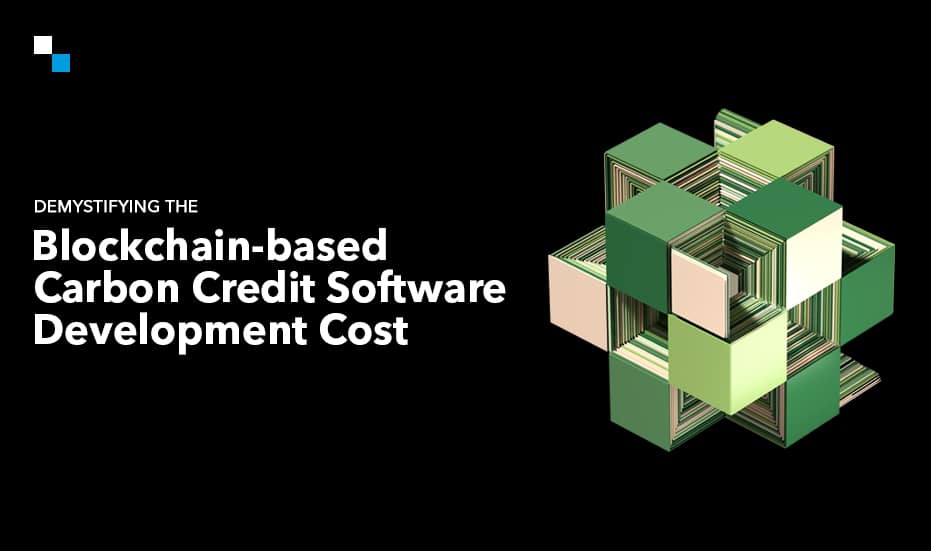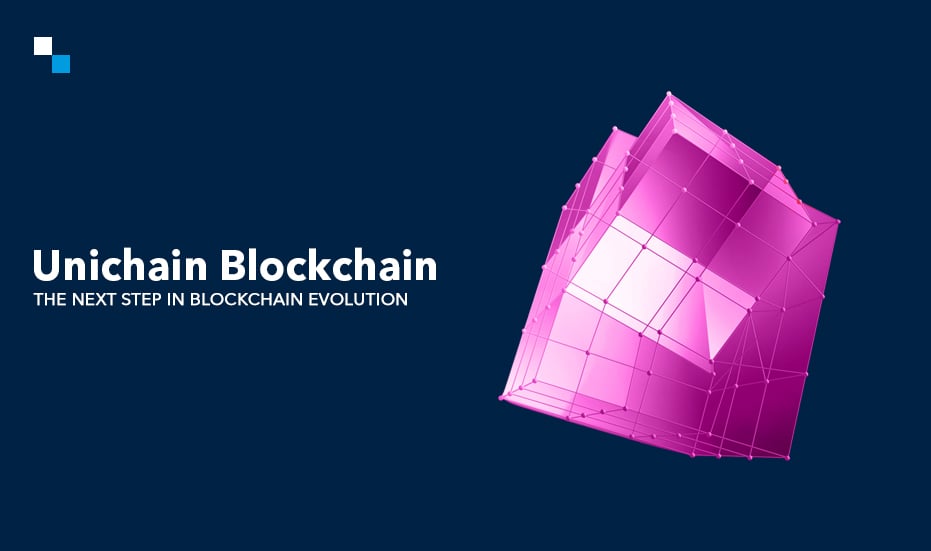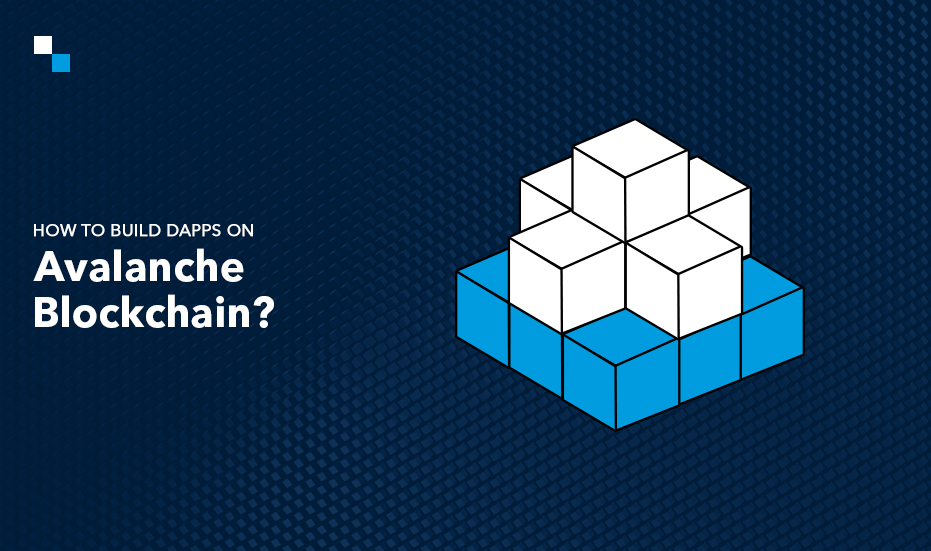
Crypto Wallet Development Experts Streamlines Trust Wallet-like App Launch
April 22, 2024
An Explainer White Label Cryptocurrency Exchange Guide To Maximize Gains in 2024
April 22, 2024The urgency to combat climate change and achieve ‘net-zero’ targets enables companies worldwide to rely on distinct measures, such as process modification, fuel switching, product reformulation, shifting to renewable power, investing in carbon removal projects, and purchasing carbon credits to limit the worst impact of a global issue.
Among all these innovative measures, carbon credits are one of the useful tools that have a positive impact on a variety of aspects if used correctly.
“Carbon credits, also known as carbon offsets, are financial instruments that allow business owners to emit a certain amount of CO2 or other greenhouse gases. One carbon credit permits the emission of one ton of carbon dioxide or the equivalent in other greenhouse gases.”
However, the traditional carbon credit market involves cumbersome and complex paper-based processes that are prone to manual errors. In such a case, blockchain-based carbon credit software development emerges as a groundbreaking solution to measure, track, and manage emissions and contribute to global efforts to mitigate climate change.
Investing in blockchain-based carbon credit software development is undoubtedly a surefire way to streamline carbon emissions management, enhance transparency in trading practices, and accelerate the transition towards a more sustainable future. In this blog, we aim to provide you with a brief overview of blockchain-enabled carbon credit platform cost so that nothing can stop you gear up your efforts toward making your business sustainable.
Understanding Blockchain-based Carbon Credit Software
Blockchain carbon credit software refers to a digital platform that utilizes blockchain technology to manage and facilitate the trading of carbon credits. These credits represent the reduction or removal of greenhouse gas emissions from the atmosphere.
How Blockchain-based Carbon Credit Software Works – An Illustrative Example
Imagine a company named EcoTech invests in solar panels to reduce its carbon footprint. EcoTech generates excess energy, which it can sell as carbon credits.
Here’s how blockchain-based carbon credit software works in this scenario:
- Issuance: EcoTech’s solar panels reduce carbon emissions, which further help earn carbon credits that are digitally issued and stored on a blockchain ledger.
- Blockchain Ledger: Each carbon credit transaction, from issuance to sale, is recorded on a transparent and tamper-proof decentralized ledger, ensuring trust among market participants.
- Smart Contracts: EcoTech lists its carbon credits for sale on a blockchain-based trading platform. Interested buyers can simply access credit details and terms through smart contracts. Once a buyer purchases the credits, the smart contract automatically executes the transaction.
- Verification: The software integrates IoT devices to monitor solar panel performance and energy production in real time, which helps ensure the legitimacy of EcoTech’s carbon reduction efforts. This real-time data is securely recorded on the blockchain, providing verifiable proof of emissions reduction.
- Trading Platform: EcoTech’s carbon credits are listed on a blockchain-based carbon trading platform where companies striving to offset their emissions can purchase them. The platform facilitates transparent and efficient trading, promoting liquidity in the carbon credit market.
- Compliance: The blockchain carbon credit software also automates compliance with regulatory standards, generates reports, and verifies that EcoTech’s carbon credits align with established criteria, ensuring adherence to regulatory frameworks.
How Much Does a Blockchain-based Carbon Credit Platform Cost?
Businesses increasingly turn to blockchain-based carbon credit platforms to track and offset their carbon footprint and achieve sustainability. However, one common question looms large: How much does a blockchain carbon credit platform cost?
The blockchain-based carbon credit platform cost varies depending on several factors. These include the complexity of the solution, the features required, regulatory compliance needs, and the development team’s expertise. Below, we have covered in detail-

Top Factors Influencing the Development Cost
- Scope and Complexity
The scope and complexity of the software significantly influence carbon credit platform cost. Developing a basic blockchain-based carbon credit software with essential features like carbon credit issuance and trading will incur lower costs compared to a comprehensive solution with advanced functionalities such as automated compliance verification and integration with IoT devices for real-time emissions monitoring.
- Technology Stack
The choice of technology stack also plays a crucial role in determining carbon credit platform cost. Factors such as the blockchain platform (e.g., Ethereum, Hyperledger), programming languages, and development frameworks impact both initial development expenses and long-term maintenance costs.
- Regulatory Compliance
Compliance with regulatory standards and frameworks, also adds complexity to the blockchain carbon credit project development process. Ensuring that the software adheres to these standards requires thorough research, implementation of compliance mechanisms, and ongoing updates to reflect regulatory changes.
- User Experience (UX) Design
A user-friendly interface is essential for the widespread adoption of the software. Investing in UX design is important to enable users to navigate the platform intuitively. Designing an intuitive and visually appealing interface requires skilled UX designers and may contribute to development costs.
- Security Measures
Implementing robust security measures is imperative to safeguard the sensitive nature of carbon credit transactions. Implementing encryption techniques, multi-factor authentication, and secure access controls adds to the development costs, however, these measures are also essential to protect sensitive data and prevent unauthorized access and malicious attacks.
- Scalability
Building a scalable solution capable of handling a growing volume of transactions and users is crucial for long-term success. Designing an architecture that can accommodate increased future demand is important. This is what requires additional carbon credit platform cost, however, it is also vital to ensure the software’s viability as adoption grows.
While the blockchain-based carbon credit platform cost can vary, investing in such a solution aligns with both environmental goals and long-term financial sustainability.
Collaborate with Antier for Blockchain Carbon Credit Software Development
Collaborating with a reliable carbon credit software development company like Antier is a strategic decision as it can significantly impact the success and effectiveness of your sustainability initiatives.
Why Collaborate?
- Expertise and Specialization: Antier is a reputed organization that brings a wealth of expertise in developing blockchain-enabled carbon credit software to the table.
- Industry Knowledge: The carbon credit project development involves intricate knowledge of emissions reduction methodologies, environmental policies, market dynamics, and more. Antier is a specialized company that possesses a deep understanding of these factors.
- Regulatory Compliance: Antier is a reliable development partner that ensures that your blockchain-enabled carbon credit software remains compliant with the latest regulatory requirements.
- Technology Proficiency: Antier leverages advanced technologies like blockchain and smart contracts for carbon credit software development. The company is equipped with such technical skills to implement these technologies effectively.
- Efficient Development Process: Antier leverages the experience gained from previous projects to streamline the development process. Their established workflows and methodologies also contribute to the efficient delivery of a high-quality product.
- Cost Effective: Antier’s expertise in blockchain technology ensures optimized solutions that minimize overhead costs, making it a cost-efficient choice for businesses seeking sustainability solutions.
-
Conclusion
Blockchain-based carbon credit software is a promising solution that revolutionizes the management and trading of carbon credits and helps businesses contribute to global efforts to combat climate change. However, blockchain carbon credit software development involves various factors that influence costs. Thorough planning, collaboration with stakeholders, and adherence to best practices can help streamline the process and mitigate cost overruns.
Antier is a leading blockchain development company that enables organizations to effectively manage their carbon emissions through expert-built blockchain-based carbon credit software that promotes sustainability and contributes to a greener future. Connect with Antier’s experienced team to get an estimate of carbon credit platform cost.



